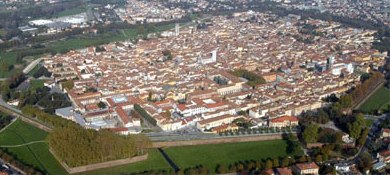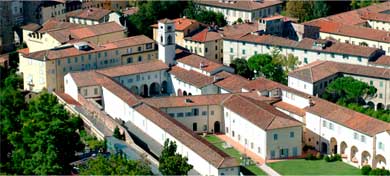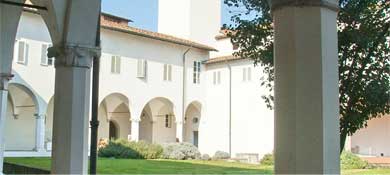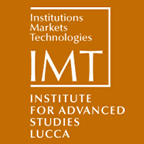Keynote I
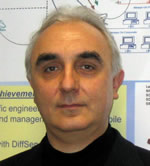
Information-Centric Networking:
Overview, Current State and Key Challenges
Prof. George Pavlou
University College London, UK
Abstract: Information-Centric Networking (ICN), also referred to as content-centric, content-aware or data-oriented networking, is seen as an emerging paradigm that tries to re-focus communications, centering on content access rather than on host-to-host interaction as is the case today. The proliferation of user-generated content and the fact that the vast majority of interactions over the Internet concern media content access has led researchers to think of new communication models in which information/content comes on center stage and is accessed in a location-independent fashion; in addition, the underlying network is aware of the content characteristics and optimizes delivery accordingly. The resulting communications paradigm is receiver-driven, with “time-phased” multicasting and in-network caching being the norm. The network infrastructure becomes more intelligent, with application logic potentially executing within the network in order to support demanding media applications that are not possible today. This presentation will start with an overview of information-centric networking, it will present the state-of-the-art in the relevant research activities and will consider the current state and key challenges. The management challenges of the expected fluid and more dynamic network infrastructure will also be specially considered.
Biography: George Pavlou is Professor of Communication Networks in the Department of Electronic and Electrical Engineering, University College London, UK, where he coordinates activities in networking and network/service management. Before re-joining UCL in the beginning of 2008, he was for ten years (1998-2007) Professor of Communication and Information Systems in the Department of Electronic Engineering, University of Surrey, UK. He holds a Diploma (MEng equivalent) in Engineering from the National Technical University of Athens, Greece, and MSc and PhD degrees in Computer Science from University College London. His research interests focus on networking, network management and service engineering, including aspects such as traffic engineering, quality of service management, policy-based systems, autonomic networking, information-centric networking and communications middleware. He has been instrumental in a number of collaborative research projects that produced significant results and has contributed to standardization activities in ISO, ITU-T and the IETF. Prof. Pavlou is currently the Vice Chair of IEEE CNOM and has been the technical program co-chair of the 7th IFIP/IEEE Integrated Management Symposium (IM 2001) and the 10th IFIP/IEEE International Conference on Management of Multimedia and Mobile Networks and Services (MMNS 2008). He has published extensively and has given invited talks and tutorials in major international conferences. See http://www.ee.ucl.ac.uk/~gpavlou/ for more details on his research activities and his publications.
Keynote II
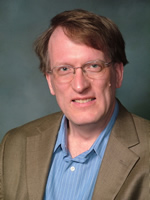
A Tale of Two Networks (2025)
Prof. Henning Schulzrinne
Columbia University, NY, USA
Abstract: Computer networks have become indispensable parts of the infrastructure, which means that people only notice them when they do not work. However, the next few years are likely to bring a number of fundamental changes to deployed networks: For example, after 150 years, the circuit-switched telephone system will largely fade into the far edges of the network, along with over-the-air TV. Two visions of IP networks are likely to struggle for supremacy: on the one hand, the network assumed by most researchers - open, application-neutral, subject to provider competition and offering ample capacity. However, we may see instead IP networks with dedicated functionality, with charges depending on the content carried and controlled by a very small number of vertically-integrated providers that own all components, from the fiber and spectrum, to the entertainment video content carried on the network. The talk will reflect on the Open Internet debate and the challenges of severely limited spectrum in most urban areas.
Biography: Prof. Henning Schulzrinne received degrees from Darmstadt (Germany) University of Technology, the University of Cincinnati and the University of Massachusetts in Amherst. He has held research positions at GMD Fokus, Berlin and Bell Laboratories before joining the faculty of Columbia University, New York. From 2004 until 2009, he chaired the Department of Computer Science and is now Julian Clarence Levi Professor of Computer Science. From 2010, he has also served as an Engineering Fellow at the U.S. Federal Communications Commission (FCC). His research interests encompass real-time network services, ubiquitous and mobile computing and network reliability. He is a co-author of more than 50 RFCs, including RTP, RTSP, SIP and GIST.
